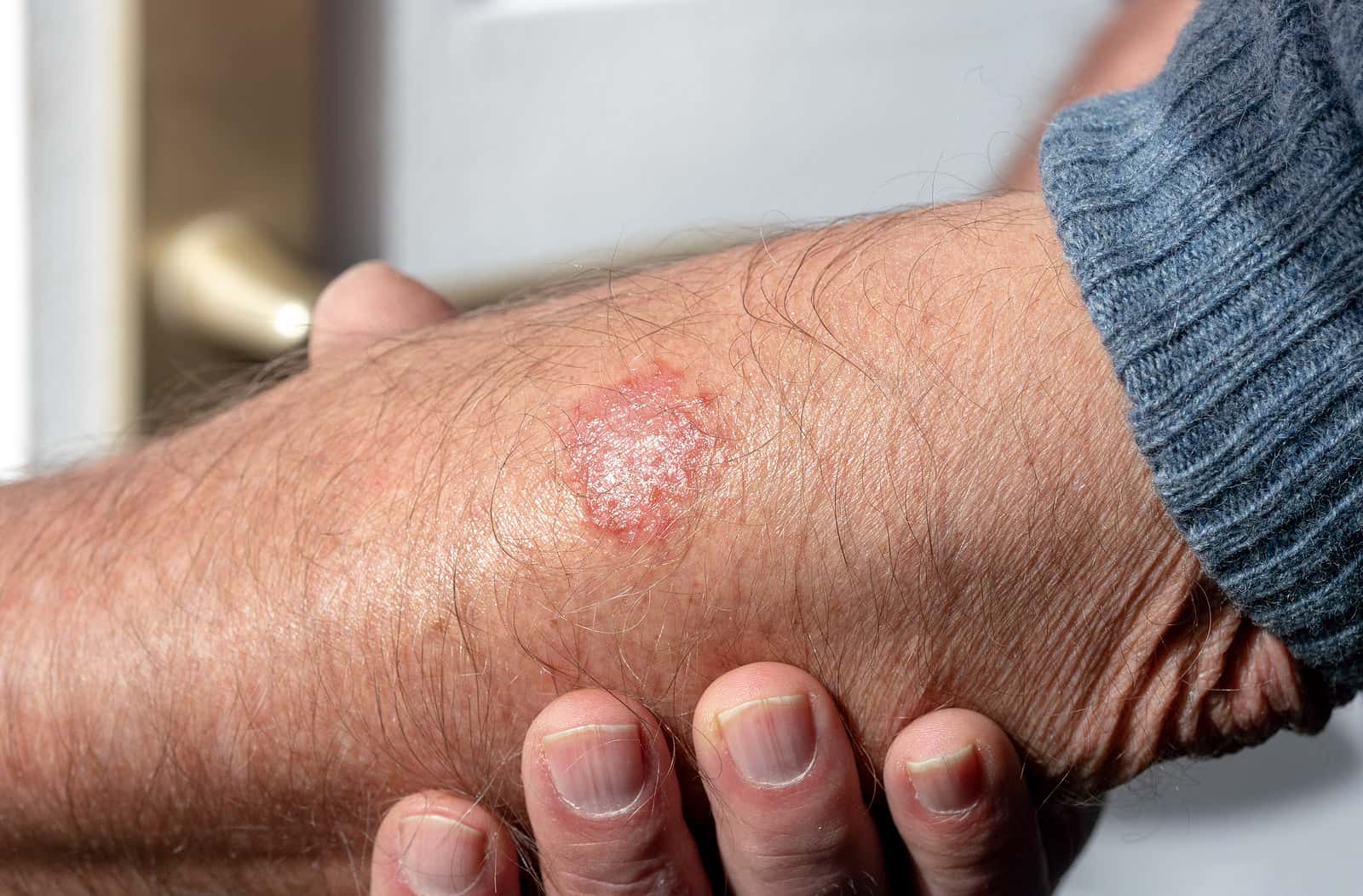
Dermatologists call it “atopic dermatitis.” Ordinary people talk about “eczema.” Whatever you call it, the itchy inflamed patches of skin are uncomfortable and possibly even embarrassing. Even young infants may suffer from this skin condition, but older people are not immune to it. This sensitive dry skin is itchy, but scratching at it makes eczema worse. On pale skin, eczema appears reddish, but on darker skin the appearance may be more purple, gray or ashen. Severe cases may lead to oozing or swelling, so it makes sense to learn what to do for it.
Years of Suffering:
Q. I was plagued with several patches of eczema, especially around my lips. The dermatologist prescribed a cortisone cream that kept the rash at bay. However, I didn’t like the idea of ingesting that much cortisone. I worried it would shut down my underactive thyroid.
I suffered through several years of embarrassing rash until I took a short stab at following a completely vegan diet. Within a couple of days, the rash cleared up completely. As I added animal protein back into my diet, though, I realized that eggs were the culprit. As soon as I ate anything with egg, it made my eczema worse.
I recommend that anyone suffering from eczema do a few food challenges to eliminate the possibility of food sensitivities before turning to topical or oral medications that may have serious side effects.
Do Food Allergies Make Eczema Worse?
A. Food allergies can indeed trigger eczema (Annals of Allergy, Asthma & Immunology, July 20, 2020). However, many dermatologists insist that the primary problem with atopic dermatitis is decline in the barrier function of the skin (Immunology and Allergy Clinics of North America, Nov. 2019). They fear that food-elimination diets may be dangerous, especially for babies, and recommend treatments to protect the skin barrier instead. People with eczema could use moisturizers rather than relying too heavily on cortisone cream.
A symposium considering why people develop food allergies and how they might make asthma or eczema worse pointed to the susceptibility of skin, lung and gut surface tissue to environmental pollution, including detergents as one example (Journal of Allergy and Clinical Immunology, April 2020). As a result, the microbiota populating the digestive tract or the skin may change, allowing room for “bad actors” to become more dominant and cause trouble. When scientists learn more about safe ways to alter the microbiome, they may use that to reverse these related conditions.
Citations
- Krempski JW et al, "The origins of allergy from a systems approach." Annals of Allergy, Asthma & Immunology, July 20, 2020. DOI: 10.1016/j.anai.2020.07.013
- Kraft MT & Prince BT, "Atopic dermatitis is a barrier Issue, not an allergy issue." Immunology and Allergy Clinics of North America, Nov. 2019. DOI: 10.1016/j.iac.2019.07.005
- DeKruyff RH et al, "Summary of the Keystone Symposium "Origins of allergic disease: Microbial, epithelial and immune interactions," March 24-27, Tahoe City, California." Journal of Allergy and Clinical Immunology, April 2020. DOI: 10.1016/j.jaci.2019.11.048

